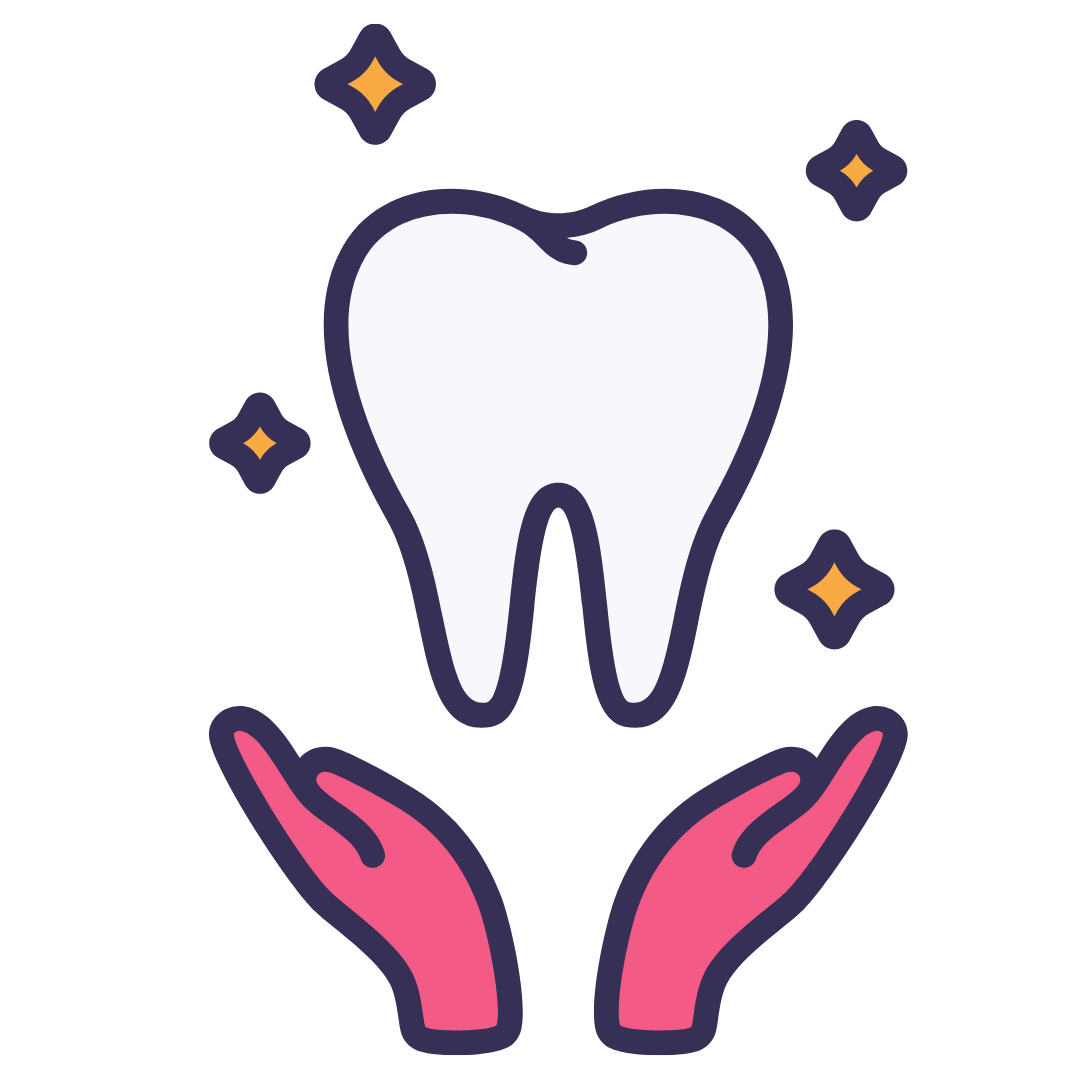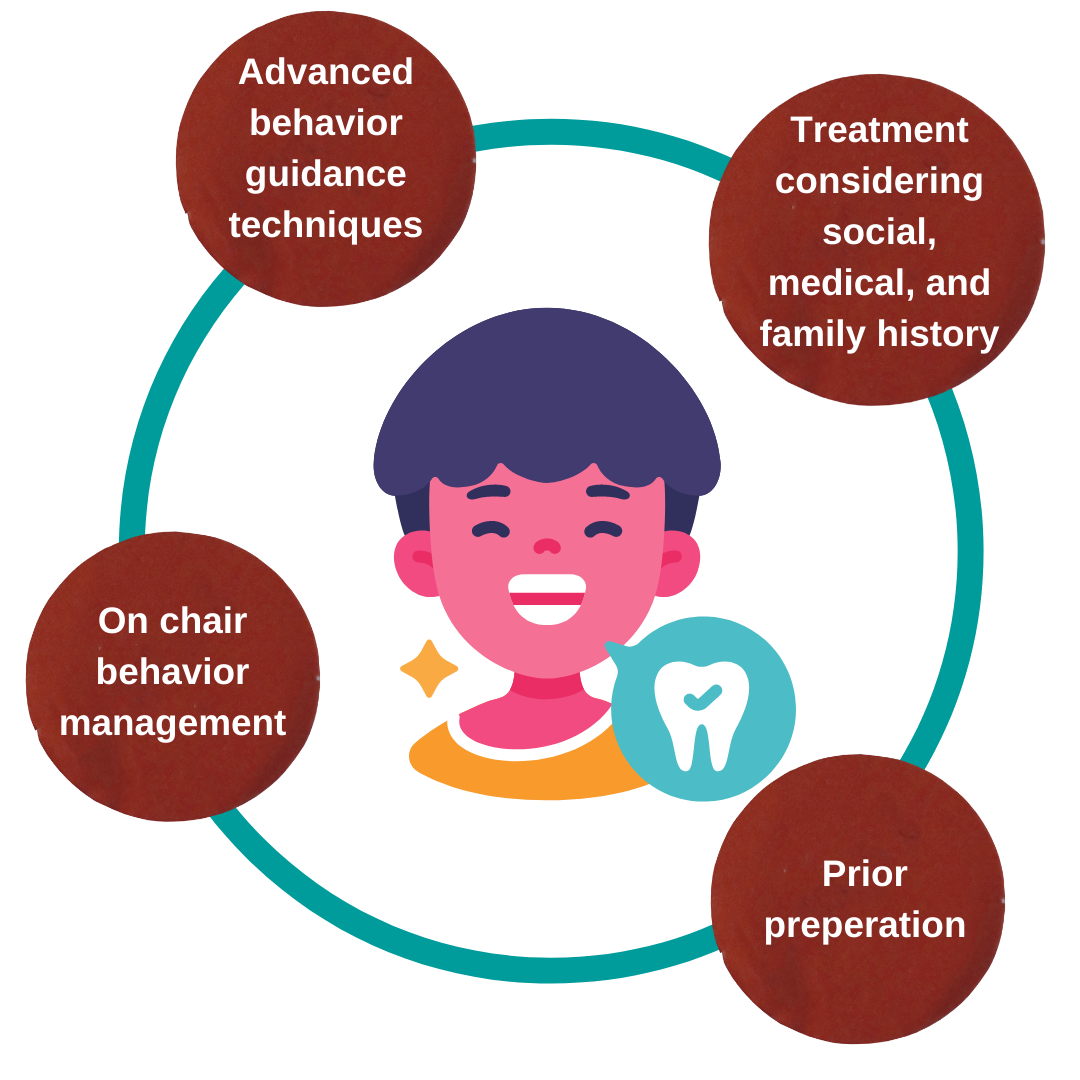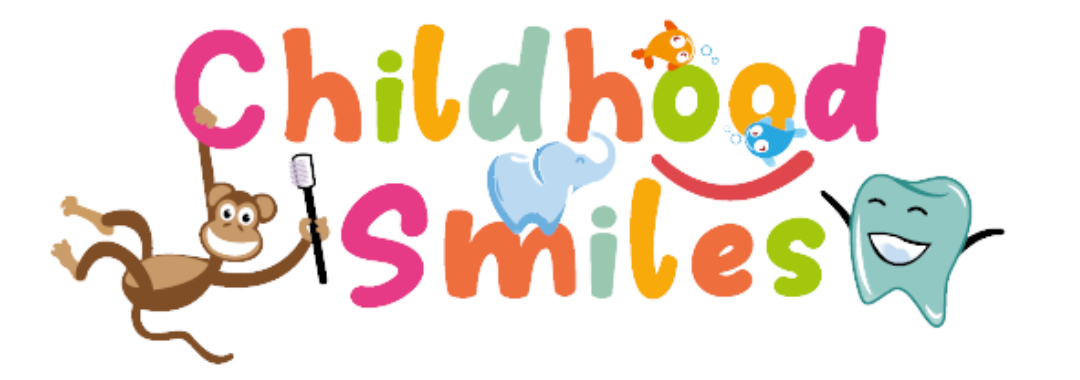Dental Care for Uniquely Abled Kids
![]() Due to lack of psychological maturity and emotional, physical and/or mental disabilities or more serious medical conditions, some patients are unable to cooperate for dental procedures.
Due to lack of psychological maturity and emotional, physical and/or mental disabilities or more serious medical conditions, some patients are unable to cooperate for dental procedures.
![]() Considering their limited ability to communicate and express themselves, we believe children with special health needs require oral health care at a very early age where preventive oral care measures can be provided.
Considering their limited ability to communicate and express themselves, we believe children with special health needs require oral health care at a very early age where preventive oral care measures can be provided.


![]() Due to lack of psychological maturity and emotional, physical and/or mental disabilities or more serious medical conditions, some patients are unable to cooperate for dental procedures.
Due to lack of psychological maturity and emotional, physical and/or mental disabilities or more serious medical conditions, some patients are unable to cooperate for dental procedures.
![]() Considering their limited ability to communicate and express themselves, we believe children with special health needs require oral health care at a very early age where preventive oral care measures can be provided.
Considering their limited ability to communicate and express themselves, we believe children with special health needs require oral health care at a very early age where preventive oral care measures can be provided.

![]() Benefits of preventive oral care
Benefits of preventive oral care
![]() Reduces the burden of oral health disease.
Reduces the burden of oral health disease.
![]() Prevents progression of oral health disease, more precisely tooth decay to severe stage.
Prevents progression of oral health disease, more precisely tooth decay to severe stage.
![]() Improves the overall health of the child.
Improves the overall health of the child.
![]() Provides psychological assurance to the family.
Provides psychological assurance to the family.
![]() Our treatment approach
Our treatment approach
![]() We prefer to use advanced behavior guidance techniques customized for a specific patient to perform dental treatment successfully.
We prefer to use advanced behavior guidance techniques customized for a specific patient to perform dental treatment successfully.
![]() The choice of behavior guidance technique is decided after recording the detailed social, medical, and family history of the patient and assessing the risks and benefits of using each technique.
The choice of behavior guidance technique is decided after recording the detailed social, medical, and family history of the patient and assessing the risks and benefits of using each technique.
![]() Whenever required, we use protective stabilization, sedation, special ambiance, including sitting comfort of the dental chair, lighting of the operatory room, audiovisual distraction, non-verbal communication modalities for smooth conduct of dental treatment.
Whenever required, we use protective stabilization, sedation, special ambiance, including sitting comfort of the dental chair, lighting of the operatory room, audiovisual distraction, non-verbal communication modalities for smooth conduct of dental treatment.
![]() Our team makes sure to send preparatory notes to the parents prior to the treatment appointment.
Our team makes sure to send preparatory notes to the parents prior to the treatment appointment.


![]() Our treatment approach
Our treatment approach
![]() We prefer to use advanced behavior guidance techniques customized for a specific patient to perform dental treatment successfully.
We prefer to use advanced behavior guidance techniques customized for a specific patient to perform dental treatment successfully.
![]() The choice of behavior guidance technique is decided after recording the detailed social, medical, and family history of the patient and assessing the risks and benefits of using each technique.
The choice of behavior guidance technique is decided after recording the detailed social, medical, and family history of the patient and assessing the risks and benefits of using each technique.
![]() Whenever required, we use protective stabilization, sedation, special ambiance, including sitting comfort of the dental chair, lighting of the operatory room, audiovisual distraction, non-verbal communication modalities for smooth conduct of dental treatment.
Whenever required, we use protective stabilization, sedation, special ambiance, including sitting comfort of the dental chair, lighting of the operatory room, audiovisual distraction, non-verbal communication modalities for smooth conduct of dental treatment.
![]() Our team makes sure to send preparatory notes to the parents prior to the treatment appointment.
Our team makes sure to send preparatory notes to the parents prior to the treatment appointment.
![]() Note
Note
![]() In case chairside treatment is difficult, we prefer doing the treatment under general anesthesia in a hospital set up with parental consent.
In case chairside treatment is difficult, we prefer doing the treatment under general anesthesia in a hospital set up with parental consent.
![]() We refer patients to their physicians/pediatricians/anaesthesiologists for consent and approval for a specific dental treatment to be performed.
We refer patients to their physicians/pediatricians/anaesthesiologists for consent and approval for a specific dental treatment to be performed.
